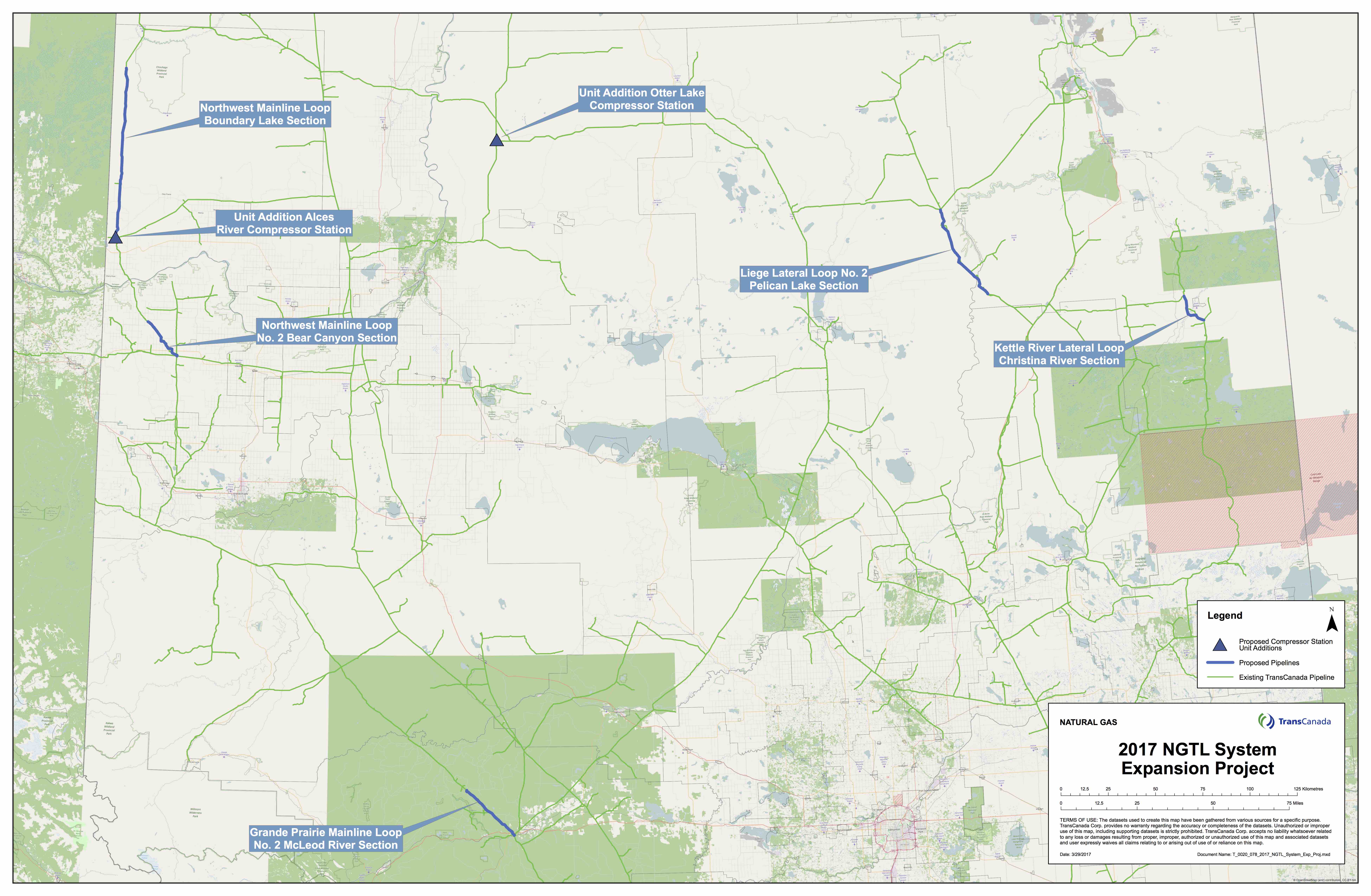TransCanada to Proceed with $2.4 Billion NGTL Expansion

TransCanada Corporation today announced that it will move forward with a $2.4 billion expansion of its NGTL System to connect incremental supply and expand basin export capacity by one Bcf/d of natural gas at the interconnection with its Canadian Mainline.
The company recently completed an open season for existing and export capacity at the Empress/McNeill Export Delivery Point that was oversubscribed. Shippers have executed binding agreements for 1.0 Bcf/d of expansion capacity for firm service that will commence in November 2020 and April 2021. The average of the contract terms awarded for the expansion capacity is 28.6 years.
“The successful open season shows strong industry support to significantly expand transmission capacity out of the basin and improve market connectivity for Canadian natural gas production,” said Russ Girling, TransCanada’s president and chief executive officer. “We continue to work diligently with industry to facilitate economic access for their natural gas to key export markets, including access to Eastern Canada and the U.S. Northeast through TransCanada’s Canadian Mainline and downstream systems.”
TransCanada also executed contracts for incremental firm receipt service totaling 620 mmcf/d of natural gas per day beginning in April 2021. These contracts will connect new supply in the low-cost Montney, Deep Basin and Duvernay plays to the NGTL System and provide shippers access to various local and export markets.
“This program will provide much-needed transportation solutions for Western Canadian natural gas producers and unlock access to existing Canadian Mainline capacity,” added Girling. “The NGTL System is a strategic TransCanada asset and we are committed to providing shippers with timely and competitive options to connect growing basin supply to downstream markets throughout North America.”
The incremental receipt and export delivery contracts will drive a $2.4 billion expansion program that will include approximately 375 kilometers (233 miles) of large diameter pipeline, compression facilities, meter stations and other associated facilities. TransCanada anticipates filing a project description with the National Energy Board by the second quarter of 2018 to initiate the regulatory review process for the expansion and, subject to regulatory approvals, construction will begin in 2019.
Related News
Related News

- Keystone Oil Pipeline Resumes Operations After Temporary Shutdown
- Freeport LNG Plant Runs Near Zero Consumption for Fifth Day
- Biden Administration Buys Oil for Emergency Reserve Above Target Price
- Mexico Seizes Air Liquide's Hydrogen Plant at Pemex Refinery
- Enbridge to Invest $500 Million in Pipeline Assets, Including Expansion of 850-Mile Gray Oak Pipeline




Comments